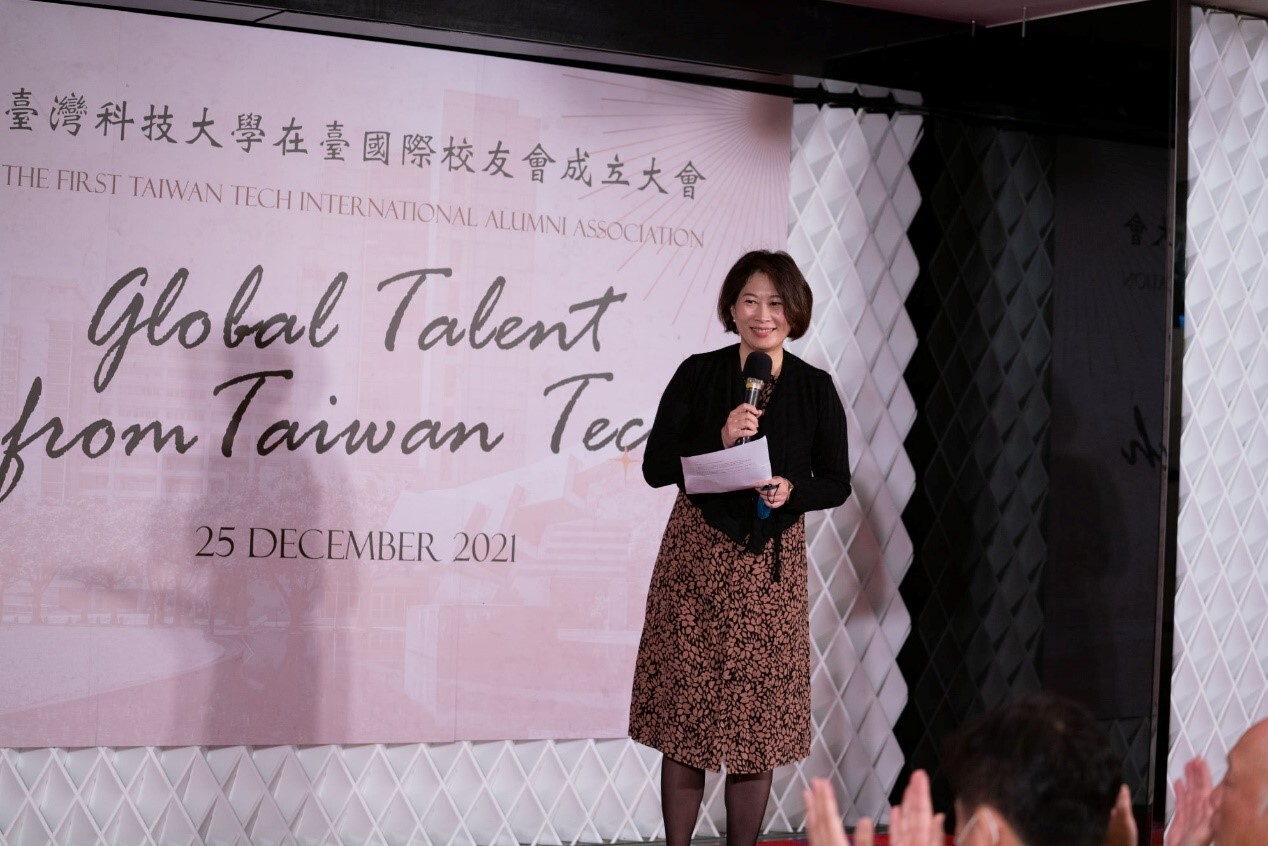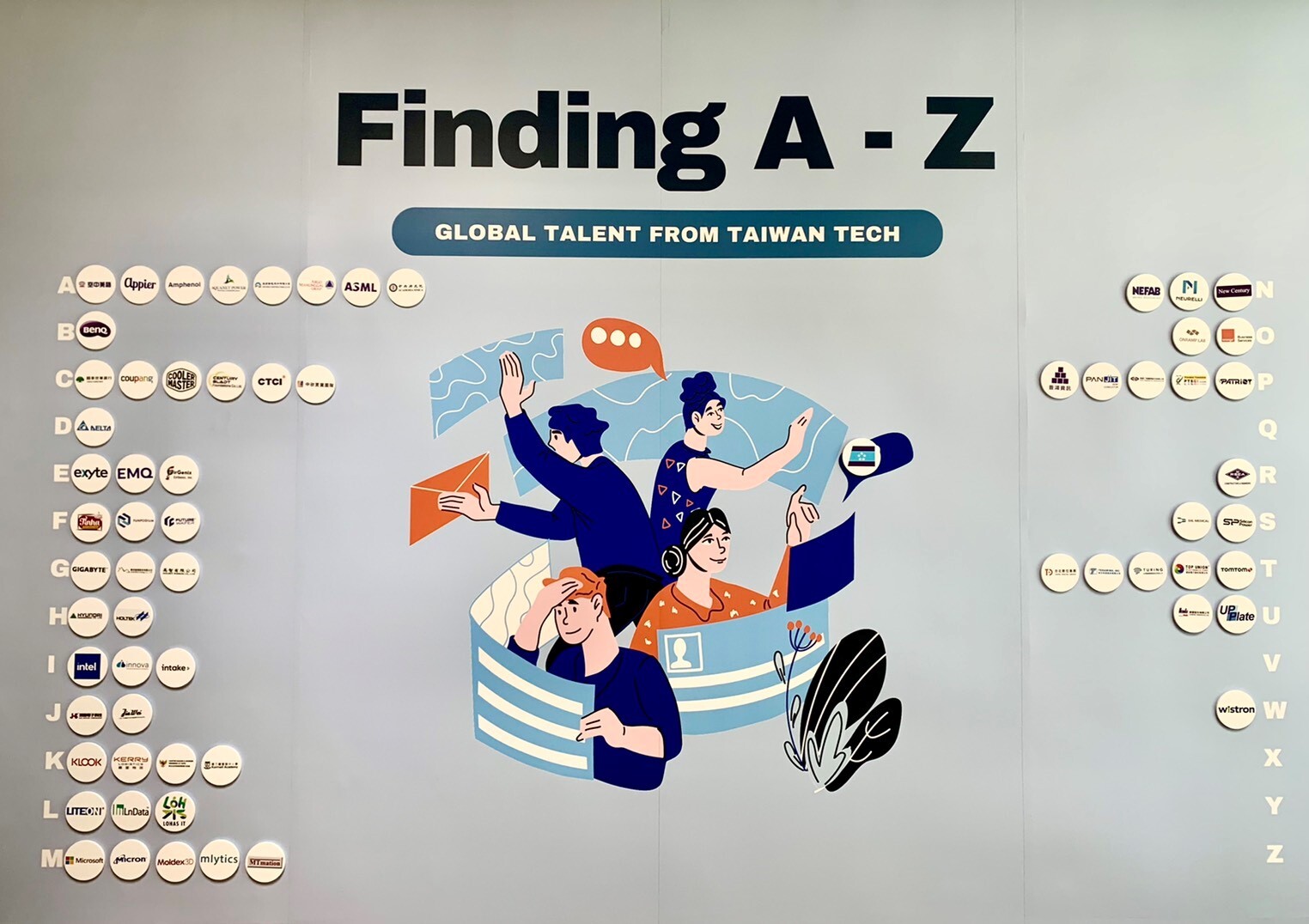

speaks about internationalization, the new College of Industry-Academia Innovation, and the Global Talent from Taiwan Tech initiative
Yvonne Yeh is a Professor at the Department of Business Administration of Taiwan Tech’s School of Management. She gained her PhD in Industrial Engineering at the University of Wisconsin, USA, and returned to Taiwan to pursue an academic career. She joined Taiwan Tech in 2010, and has held several administrative positions in the School of Management since. In 2021, she was appointed Dean of the Office of International Affairs (OIA). In her teaching and research, Yvonne focuses on Human Resource Management and Organizational Behavior. She explores work-life balance, work-place ethics, career diversity and inclusion, work satisfaction, and other “hot topics” in contemporary work-related research. She often conducts multi-country comparative studies with her international graduate students and peers.
As Dean of International Affairs, Yvonne has been building on her research interests and has directed attention to a group that can be seen as one of Taiwan Tech’s biggest assets: Highly-qualified international graduates who wish to stay in Taiwan after graduation. Dubbed as the Global Talent of Taiwan Tech Initiative, the OIA-staff has come up with programs and events to support international students who wish to start their careers in Taiwan. At the same time, Yvonne is reaching out to employers and HR-departments of Taiwanese companies to understand their needs and problems when hiring international graduates.
In the following interview, Yvonne Yeh speaks about Taiwan Tech’s unique path to internationalization, successful university-academia cooperation, and her Finding A to Z-project.
In a nutshell: What are Taiwan Tech’s unique strengths?
First of all, Taiwan Tech is known for producing well-trained graduates, who have the ability to apply their professional knowledge and skills in actual work life. This is due to the close ties with Taiwan's industry that all our departments have been nurturing over the years. Secondly, Taiwan Tech has the highest percentage of foreign graduate students in Taiwan. In the past decade, the number of foreign students has tripled. They hail from 59 different countries, making the campus feel like a mini-United Nations, which is very much appreciated by foreign and domestic students alike.
What is special about Taiwan Tech’s internationalization strategy?
In other universities in Taiwan, foreign students are often managed by Colleges of International Studies or similar units. The most unique feature of Taiwan Tech’s internationalization process is that all departments and administrative units are responsible for international affairs and foreign students, while the Office of International Affairs is in charge of the overall policies, administrative affairs and outreach. Our “Everyone is Responsible” approach has helped to speed up the internationalization process, so that we are now ahead of the competition. Over the past 20 years, Taiwan Tech has signed MOUs with outstanding universities from all over the world. Long before the government launched its Southbound Policy Program, we have been recruiting students from South East Asia, especially from Indonesia and Vietnam. But we also have strong connections with Ethiopia, and we are in charge of a unique transnational program with Paraguay. Through our partners in several continents, we have developed expertise in dealing with students from different regions, and increased the intercultural competencies of our faculty and staff. While student mobility took a downturn during the COVID 19-pandemic internationally, the number of foreign students at Taiwan Tech has reached a new peak with 1,500 enrollments in 2021.
How did governmental policies impact Taiwan Tech’s internationalization process?
 Indeed, government policies have had a big impact. In the past, the international student quota at national universities was restricted to 10%. However, with a decreasing birth-rate and the problems that come with it, the government has relaxed regulations, and now encourages Taiwanese universities to train more foreign students, particularly in the “5+2 industries that are deemed crucial for Taiwan’s development. Three of our colleges, the Colleges of Engineering, Computer Sciences, and the School Management, were the first to start the journey of internationalization. By now, they have accumulated a lot of experience with English-taught courses, managing international partnerships, etc. Most of their graduates are now working in the high-tech industry in Taiwan or abroad.
Indeed, government policies have had a big impact. In the past, the international student quota at national universities was restricted to 10%. However, with a decreasing birth-rate and the problems that come with it, the government has relaxed regulations, and now encourages Taiwanese universities to train more foreign students, particularly in the “5+2 industries that are deemed crucial for Taiwan’s development. Three of our colleges, the Colleges of Engineering, Computer Sciences, and the School Management, were the first to start the journey of internationalization. By now, they have accumulated a lot of experience with English-taught courses, managing international partnerships, etc. Most of their graduates are now working in the high-tech industry in Taiwan or abroad.
Internationalization and employability are the mean features of the Taiwan Tech “brand”- Could you elaborate on this idea?
As explained above, the early development of internationalization, its wide scope and depth are unique features of Taiwan Tech. And the other pillar of the “Taiwan Tech brand”, is the high employability of our graduates which is regularly reflected in national and international employability rankings. The recipe for this success story lies in our strong ties with Taiwan’s industry which we have built up over many years. And we are about to add a new chapter to it: Last year, the Ministry of Education launched a new program that aims to foster university-industry cooperation. Taiwan Tech is one of four universities that applied successfully. We have established a new College of Industry-Academia Innovation, where we will cooperate with more than ten companies to jointly cultivate talent. Different from Taiwan’s “big four” national universities which are training students mostly for the semiconductor industry, we have decided to focus on other crucial fields, namely smart manufacturing, artificial intelligence, and energy sustainability technology.
How is the job market situation for foreign graduates in Taiwan?
In the past, the procedures for employing international staff were such a hassle that companies were reluctant to hire foreigners. In recent years, the legal procedures have been relaxed, and it has become much easier for companies. Apart from Taiwan’s declining birth rate, the need to recruit international staff is also due to the changing international situation. As a consequence of the China-US trade war, many Taiwanese companies have moved their factories from China to Southeast Asia. They need people, who are versed in South East Asian languages and culture, but also understand Taiwan. Our Southeast Asian graduates perfectly fit these requirements, and have the option to work in their home countries, or at the head office in Taiwan as windows of communication. We also heard from R&D departments of electronics and engineering companies that our international graduates are performing well, and are a stimulus for the local staff.
 Taiwan is suffering from a talent shortage and needs to improve on talent retention. How is Taiwan Tech addressing this problem?
Taiwan is suffering from a talent shortage and needs to improve on talent retention. How is Taiwan Tech addressing this problem?
In spite of improvements, is not easy for foreign students to find jobs in Taiwan. One of the biggest obstacles is, that most job ads and search platforms are only in Chinese. We know from our alumni, that in addition to professional skills and fluency in English, Chinese language proficiency will greatly increase employment opportunities for foreign graduates. So, we developed the formula Professional Skills + English Proficiency + Chinese Proficiency = Competitiveness in Employment. We will spend more efforts on our Chinese language training programs, especially in professional Chinese. Also, we are reaching out to HR-managers to understand their concerns, and to convince them of the advantage of hiring international graduates.
Alumni are seen as important assets of universities. How does Taiwan Tech keep in touch with its international alumni?
Alumni services are one of the most important tasks of any university. In 2021, we organized an alumni event under the motto Global Talent from Taiwan Tech that was attended by more than 130 alumni. The NTUST International Alumni Association in Taiwan was established, a network of alumni who are currently working in Taiwan.
And we launched the "Finding A to Z" project to find the companies that have recruited Taiwan Tech graduates. We will invite HR managers to talk about advantages of hiring foreign graduates, and we have set up a Global Talent from Taiwan Tech section on our website where alumni can share their experiences. We also offer our communication channels for posting job advertisements in English. With our three-pronged approach, that integrates the feedback of alumni, the needs of HR-managers, and Taiwan Tech resources, we can achieve a win-win-win situation for the university, enterprises and foreign graduates.Annotations
Annotations
“5+2 industries”: Smart Machinery, Green Energy Technology, Biomedical Industry, Defense Industry, New Agriculture Circular Economy, and Asia‧Silicon Valley
The Act for National Key Fields Industry-University Cooperation and Skilled Personnel Training was promulgated in May 2021
Taiwan’s “big four” national universities: National Taiwan University, National Tsing Hua University, National Chiao Tung-Yangming University, and National Cheng Kung University